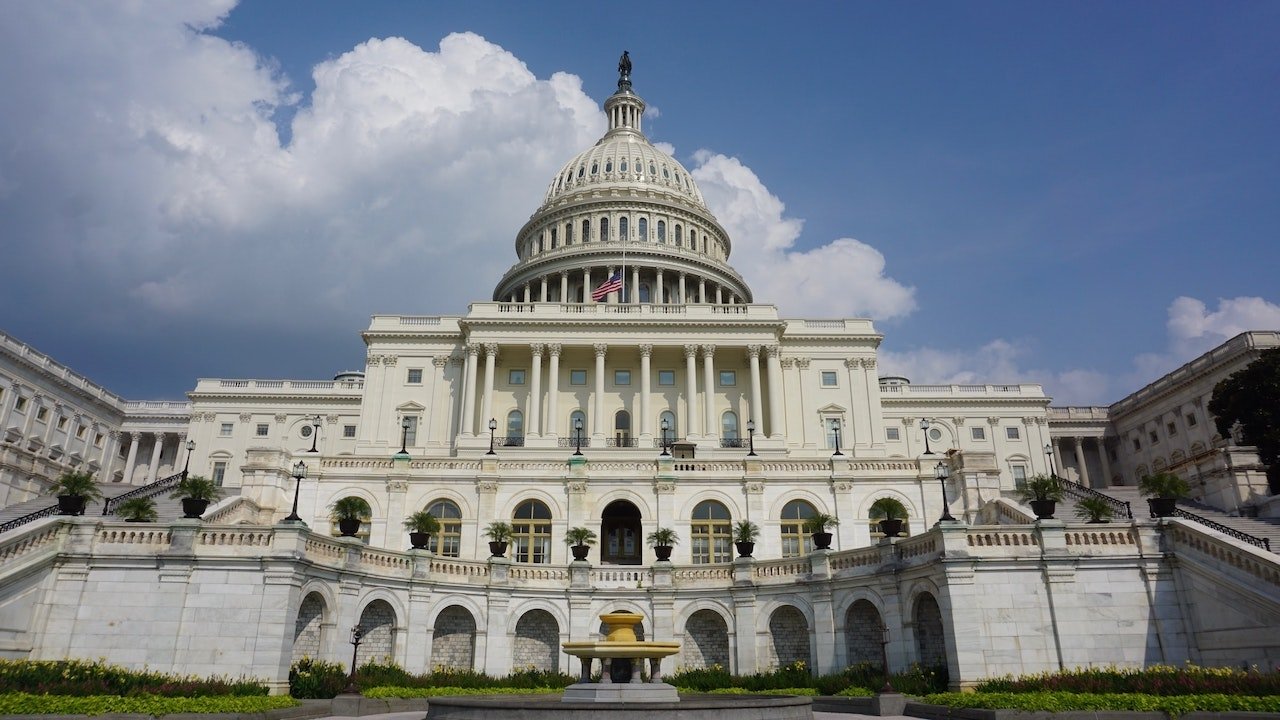Apple is urging top Senate lawmakers to reject a new piece of antitrust legislation that would force it to allow iOS users to download apps from outside of the App Store.
The letter, penned by Apple head of government affairs in the Americas Tim Powderly, was sent to top members of the U.S. Senate Judiciary Committee ahead of its scheduled discussion of the bill on Thursday. It echoes many of Apple's previous criticisms of antitrust legislation.
"We are deeply concerned that the legislation, unless amended, would make it easier for big social media platforms to avoid the pro-consumer practices of Apple's App Store, and allow them to continue business as usual," wrote Powderly.
In the letter, Apple said the bill — the Open Markets Act — would harm user security and privacy, create legal uncertainty and expansive liability exposure, and deny consumer choice, according to Bloomberg.
"Sideloading would enable bad actors to evade Apple's privacy and security protections by distributing apps without critical privacy and security checks," Powderly wrote. "These provisions would allow malware, scams and data-exploitation to proliferate."
In addition to forcing companies to allow side-loading, the Open Markets Act would also ban companies from requiring app makers to use first-party payment systems and prohibits app marketplace operators from using non-public information to compete with third parties.
The letter was sent to Senate Judiciary Chair Dick Durbin, as well as Sen. Chuck Grassley, the committee's ranking Republican.
The Open Markets Act has bipartisan support, making it likely that it will pass the Senate Judiciary Committee Thursday. It'll face a tougher battle when it goes up for a vote before the full Senate, however.
Back in January, Apple sent a similar letter to legislators on the Judiciary Committee railing against both the Open Markets Act, as well as the American Innovation and Choice Online Act, which would bar companies from preferring its own services over those of rivals.
 Mike Peterson
Mike Peterson








 Malcolm Owen
Malcolm Owen
 Marko Zivkovic
Marko Zivkovic
 Christine McKee
Christine McKee
 Andrew Orr
Andrew Orr
 Andrew O'Hara
Andrew O'Hara
 William Gallagher
William Gallagher

 Mike Wuerthele
Mike Wuerthele




-m.jpg)



34 Comments
Apple has no legal obligation to allow any third party apps on their platforms. Let alone third party app stores.
Agree with both comments above…
It’s a proprietary closed platform. Its growth and popularity in the mobile market were achieved by consumer choice, not some unfair competitive advantage they abused. As a bit of proof of that, Apple doesn’t even sell products on the low-end of the market, meaning their customers are more willing to pay more money for Apple’s products.
Wanted to add…
I do think Apple should offer some kind of tiered developer account whereby a developer could pay more yearly to opt out of the App Store and be able to distribute/sell their own apps from their own site (Apps would still be reviewed by Apple before being signed.). I also think Apple could start lowering their fees, especially for subscription services. Those two things still let Apple stay in control but also squash a lot of these issues.
Only the malcontents that infest tech blogs like AppleInsider would side-load, and they would deserve whatever they get. This is purely a case of the tail trying to wag the dog, a bunch of losers who want to force Apple to do something it doesn’t want to do when they could easily move to Android and side-load away to their heart's content as well as tweet settings till the cows come home. But no, they insist Apple be forced to be just like Android and hide behind the ‘choice’ false flag.
Apple need to open up their platform, but getting Congress involved is the wrong approach. Apple could see a new renaissance if they open their doors to more content. You would think Tim has people come to his home weekly and repaint his white walls. Tim sits in his white chair to watch the white paint dry while drinking skim milk and reading The History of Bread by John Ashton. The painters cannot speak while they are on site: that would be too interesting. Apple, not Microsoft, should have bought Activision and forged a new venture into gaming. Apple could buy Sony, Disney, or Nintendo. Anything with verve. Everything Apple do has the pizazz of a starched, white shirt. Coming soon to iOS: 1. Face ID that supports wearing a mask, but you're really tired from staying up late forcing yourself to memorize Old Man and the Sea backwards and you can't find the glasses you normally wear 2. 47 new emoji signifying various varieties of field grass, including zoysia, ryegrass, and seashore paspalum. 3. A new tab in iMessage that gives you ideas for conversation starters each day. Ideas could be discussing your favorite speed of breeze or the optimal number of times you should let a record spin on the run-out and whether you should count the rotations out-loud or silently.